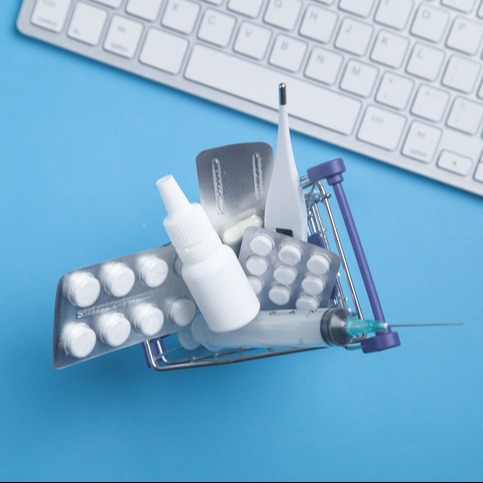
Key Takeaways
Patient education is vital for safe and effective compounded medications.
Verify a pharmacy's accreditation to ensure regulatory compliance.
Ask about safety practices, sterility measures, and batch testing procedures.
Trust in the training and certifications of pharmacists for quality assurance.
Choose reputable compounding pharmacies to prioritize health and safety.
Compounded medications play a crucial role in personalized healthcare, providing patients with customized treatments tailored to their specific needs. However, because compounded drugs are made for individuals rather than mass-produced, ensuring their safety and efficacy requires strict oversight. Without proper regulation and quality control, compounded medications could pose risks such as contamination or incorrect dosages. This is why regulatory bodies like the Food and Drug Administration (FDA) and the United States Pharmacopoeia (USP) have established guidelines that compounding pharmacies must adhere to in order to protect patients. In this post, I will discuss the significance of safety and regulation in compounding pharmacies and how these measures safeguard the health of individuals who rely on compounded treatments.
What Are Compounded Medications?
Pharmacists customize compounded medications to meet the specific needs of individual patients. Unlike mass-produced pharmaceuticals, these drugs are prepared in compounding pharmacies when commercially available options are unsuitable. Compounding allows pharmacists to create medications with unique dosages, combine multiple active ingredients, or alter the formulation (such as converting a pill into a liquid). This service is often essential for patients with allergies to certain ingredients, such as dyes or preservatives, those requiring specific dosages not available in pre-manufactured forms, or individuals who need flavor adjustments to enhance palatability, particularly for children or pets. This personalized approach ensures that patients receive treatments tailored to their unique health requirements.
Why Regulation of Compounded Medicines is Essential
Regulation of compounded medications is crucial to ensure their safety and effectiveness for patient use. Since compounded drugs are custom-made rather than mass-produced, the preparation process involves multiple steps that can impact the drug's quality if not meticulously controlled. Proper regulation ensures that pharmacists adhere to strict standards regarding cleanliness, ingredient sourcing, and preparation methods, which helps prevent contamination and guarantees accurate dosing. This oversight is essential to mitigate significant risks, including bacterial contamination, inaccurate measurements of active ingredients, and inadequate quality control—all of which can lead to harmful or ineffective treatments. Therefore, regulation is vital to protect patients and uphold the integrity of compounded medications.
An Overview of the Regulatory Bodies for Compounded Medicines
The FDA
The FDA plays a crucial role in regulating compounded medicines by enforcing the Drug Quality and Security Act (DQSA), which is enacted to protect patients from the risks associated with poorly compounded drugs. Under the DQSA, the FDA oversees two categories of compounding pharmacies: 503A and 503B. 503A pharmacies are traditional compounding facilities that create medications for individual patients based on a prescription, operating under state regulation and adhering to specific compounding standards. In contrast, 503B pharmacies are outsourcing facilities that can compound larger batches of medications without patient-specific prescriptions; however, they must meet stricter manufacturing guidelines similar to those applied to drug manufacturers, including routine inspections and adherence to current Good Manufacturing Practices. This regulatory framework helps ensure that compounded drugs are prepared safely and consistently.
The USP
The USP sets standards for compounding pharmacies to ensure the safety and quality of compounded medications. Key USP chapters include <795> and <797>, which provide detailed guidelines for compounding practices. USP <795> addresses non-sterile compounding, ensuring that medications like creams, ointments, and capsules are formulated safely. USP <797> governs sterile compounding, including the preparation of injectable drugs, requiring strict protocols to prevent contamination and maintain sterility. By adhering to these USP standards, compounding pharmacies can ensure the quality, consistency, and safety of their medications. Following these guidelines helps protect patients from the risks associated with improper compounding, such as contamination, incorrect dosing, or compromised drug stability.
Safety Measures and Quality Control in Compounding
Safety measures and quality control are critical in sterile medications, where preventing contamination is paramount. Sterile compounding involves creating medications like injectables and eye drops that are free from harmful bacteria, fungi, or particles. Strict sterility protocols, including the use of cleanrooms, HEPA filtration, and proper garbing, are essential to prevent contamination. In addition to sterility, batch testing is a crucial quality assurance practice that ensures compounded medications are free from impurities and contain the correct dosage of active ingredients. Advanced technologies, such as automated compounding devices and barcoding systems, are increasingly employed to enhance accuracy and consistency, minimizing human error and ensuring precise preparation of formulations. These safety and quality control measures help ensure that compounded medications are safe and effective for patient use.
How Compounding Pharmacies Maintain Compliance
Compounding pharmacies ensure compliance through regulatory oversight, continuous education, and diligent record-keeping. Regulatory agencies, including the FDA and state boards of pharmacy, conduct routine inspections and audits to verify adherence to safety and quality standards. These inspections evaluate the facility’s compliance with compounding protocols, cleanliness, and proper handling of materials. To maintain compliance, pharmacists must engage in continuing education and training to stay current with the latest regulations, technologies, and best practices in compounding. Additionally, thorough documentation and record-keeping are essential for tracking every step of the compounding process. Pharmacies maintain detailed records of ingredient sourcing, compounding procedures, testing results, and patient-specific formulations, ensuring accountability and enabling them to demonstrate compliance with regulatory requirements during audits. These practices are vital for maintaining the trust of both regulators and patients.
Patient Education and Informed Choices
Patient education is essential for ensuring that individuals receive safe and effective compounded medications. Patients can verify that their compounding pharmacy adheres to proper regulatory guidelines by checking for accreditation from organizations like the Pharmacy Compounding Accreditation Board and ensuring compliance with USP standards and FDA regulations. It’s important for patients to ask specific questions to better understand their pharmacy's safety and quality practices, such as whether the facility undergoes regular inspections, how it ensures sterility (if applicable), and whether it conducts batch testing for potency and purity. Inquiring about the training and certifications of the pharmacists, as well as the pharmacy's processes for ingredient sourcing and quality control, can also instill confidence in the pharmacy's commitment to safe, high-quality compounding. By being informed, patients can make safer and more confident decisions about their healthcare.
Ensuring the safety and efficacy of compounded medications is crucial for patient well-being. Adhering to rigorous safety standards and regulatory guidelines helps prevent potential risks and ensures that these custom-made treatments meet the highest quality standards. Patients should prioritize their health by choosing reputable and compliant compounding pharmacies. By doing so, they can trust that their medications are crafted with precision and care, tailored to their specific needs, and provided safely and effectively. Remember, your health is too important to compromise—always opt for pharmacies that uphold the highest safety and quality standards.
Rely on PlanetDrugsDirect.com to Buy Online Prescription Drugs
As a trusted prescription referral service, we offer important benefits whenever you order online. Each of our partner pharmacies and/or government-approved dispensaries is committed to providing the best experience possible of any online prescription referral service on the internet. We offer:
Low prices
Quick turn-around times
Generic and brand-name medications
Unparalleled customer service
Sources
Campbell EH, Elston DM, Straughan CL, Antonovich DD. Regulations, liability, safety, and economics related to compounding. J Am Acad Dermatol. 2020 Jul;83(1):184-188. doi: 10.1016/j.jaad.2019.11.061. Epub 2019 Dec 9. PMID: 31821858.
Gudeman J, Jozwiakowski M, Chollet J, Randell M. Potential risks of pharmacy compounding. Drugs R D. 2013 Mar;13(1):1-8. doi: 10.1007/s40268-013-0005-9. PMID: 23526368; PMCID: PMC3627035.
Kircik L, Siegel DM. Clinical and Legal Considerations in Pharmaceutical Compounding. J Clin Aesthet Dermatol. 2023;16(8 Suppl 1):S23-S28. PMID: 37636017.
Quertermous J, Desai S, Harper J, Lebwohl M, Torres A, Kircik LH. The Practice of Compounding, Associated Compounding Regulations, and the Impact on Dermatologists. J Drugs Dermatol. 2018 Jul 1;17(7):s17-s22. PMID: 30005109.
U.S. Food and Drug Administration. Compounding Laws and Policies. https://www.fda.gov/drugs/human-drug-compounding/compounding-laws-and-policies. September 10, 2020. Accessed September 21, 2024.
 Medically reviewed by
Medically reviewed by 





